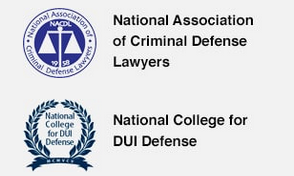Fraud and Schemes FAQs
Phoenix Criminal Defense Lawyer Defending the Rights of Clients Charges with White Collar Crimes
White collar crimes, including identity theft, money laundering, forgery, tax evasion, fraud and embezzlement, are some of the most complex criminal offenses on the books. Those who face a Phoenix financial crime may not understand what they are alleged to have done wrong, let alone how to come up with an effective defense. At the Law Office of James E. Novak, our dedicated Phoenix criminal defense attorney has decades of experience handling complex white collar crime cases throughout Maricopa County.
Understanding that these crimes are incredibly complex, we’ve put together a list of frauds and scheme FAQs to help our clients grasp what these cases are about, what’s at stake, and which defense might apply.
Chapter 23 of the Arizona Revised Statutes covers various criminal offenses, most of which involve some type of fraud. However, the most commonly used fraud statute is A.R.S. § 13-2310, which makes it a crime to knowingly obtain a benefit through the use of “false or fraudulent pretenses,” representations, promises or material omissions.
As is often the case, the definition of what constitutes fraud in Arizona isn’t exactly clear. However, lawmakers provide some clarity by defining the term “false or fraudulent pretenses” to include” the unauthorized use of an access device or the use of an access device to exceed authorized access.” In this context, an access device is anything that can be used to gain access to another’s property. For example, credit cards, account numbers, PIN numbers, biometric identifiers, and encryption keys are all considered access devices.
Given the broad definition of fraudulent schemes, many crimes fall under A.R.S. § 13-2310, including identity theft, credit card fraud, embezzlement, and illegally obtaining another’s services by fraud.
In Phoenix, prosecutors take allegations of fraudulent schemes very seriously. In most cases, a conviction for fraudulent schemes is a Class 2 felony, which carries a presumptive sentence of five years in prison. However, if the fraudulent scheme involved more than $100,000 or the purchase, sale or manufacture of opioids, you will not be eligible for probation, suspension of sentence, pardon or release from confinement until you’ve served the entire sentence issued by the court.
Additionally, prosecutors may pursue additional charges if someone willfully conceals a scheme of fraud that was carried out against a government entity. Willful concealment of a fraudulent scheme is a Class 5 felony, which carries a presumptive sentence of 1.5 years in addition to the sentence for the underlying fraud conviction.
To prove allegations of fraudulent schemes, an Arizona prosecutor must present evidence to establish each element of the crime beyond a reasonable doubt. The elements of fraudulent schemes are:
1. The defendant received a benefit,
2. The benefit received by the defendant was obtained through the use of fraudulent or false representations, promises, pretenses, or material omissions, and
3. The defendant’s actions were part of a scheme or artifice intended to defraud another person, business or government agency.
Admittedly, determining whether the prosecution’s evidence even gets close to proving these elements can be challenging. Therefore, anyone charged with fraud crimes should reach out to an experienced Phoenix frauds and schemes lawyer for immediate assistance.
If These Fraud and Schemes FAQs Raised Additional Questions, Reach Out to a White Collar Crime Attorney for Assistance
If you were recently arrested and charged with engaging in a fraudulent scheme, it is important that you have an experienced criminal defense attorney by your side. While these frauds and scheme FAQs provide you with a good background of the basics, you’ll want to know more before deciding the best way to fight your case, and the Law Office of James E. Novak can help. We have decades of experience representing clients in complex, high-stakes fraud cases, helping them ensure that their arrest has as little impact on their future as possible. To learn more, and to schedule a free consultation today, call the Law Office of James E. Novak at 480-413-1499. You can also connect with us through our secure online contact form.






















